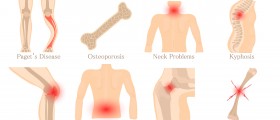Every 2or3weeks I get an upset stomach headaches diarrhea feel very tired! I sleep 18 or more hours a day can't eat anything but dry toast and water and the violent diarrhea starts in afternoon until late evening! I have had ultrasound ex rays and blood test but no possible results!
Loading...
Experiencing recurring symptoms like upset stomach, headaches, diarrhea, extreme fatigue, and changes in sleep patterns can be indicative of a variety of underlying medical issues. Here are a few possible reasons for your symptoms:
-
Gastrointestinal Issues: Your recurrent upset stomach and diarrhea may be caused by a gastrointestinal condition such as irritable bowel syndrome (IBS), food intolerances, or inflammatory bowel disease (IBD). These conditions can lead to a range of digestive symptoms, including diarrhea and abdominal discomfort.
-
Infections: Repeated episodes of diarrhea could be due to bacterial or viral infections. Some infections can cause symptoms like diarrhea, fatigue, and headache.
-
Migraines: Migraines can be associated with severe headaches, nausea, and fatigue. They can also disrupt sleep patterns and trigger gastrointestinal symptoms in some individuals.
-
Chronic Fatigue Syndrome (CFS): Chronic fatigue syndrome is characterized by extreme fatigue that doesn't improve with rest. It can be accompanied by other symptoms, including gastrointestinal issues.
-
Autoimmune Conditions: Certain autoimmune disorders can cause a wide range of symptoms, including fatigue and gastrointestinal problems.
-
Dietary Factors: Food allergies or sensitivities can lead to digestive issues, headaches, and fatigue.
-
Stress and Anxiety: High stress levels or anxiety can manifest with physical symptoms, including gastrointestinal distress, headaches, and fatigue.
Since you've had tests and investigations without conclusive results, it may be helpful to consider consulting with a specialist, such as a gastroenterologist, who can conduct more specific tests or recommend further evaluation to identify the underlying cause of your symptoms. Additionally, a thorough review of your medical history, a detailed physical examination, and potentially more specialized tests may be necessary.
Loading...
















